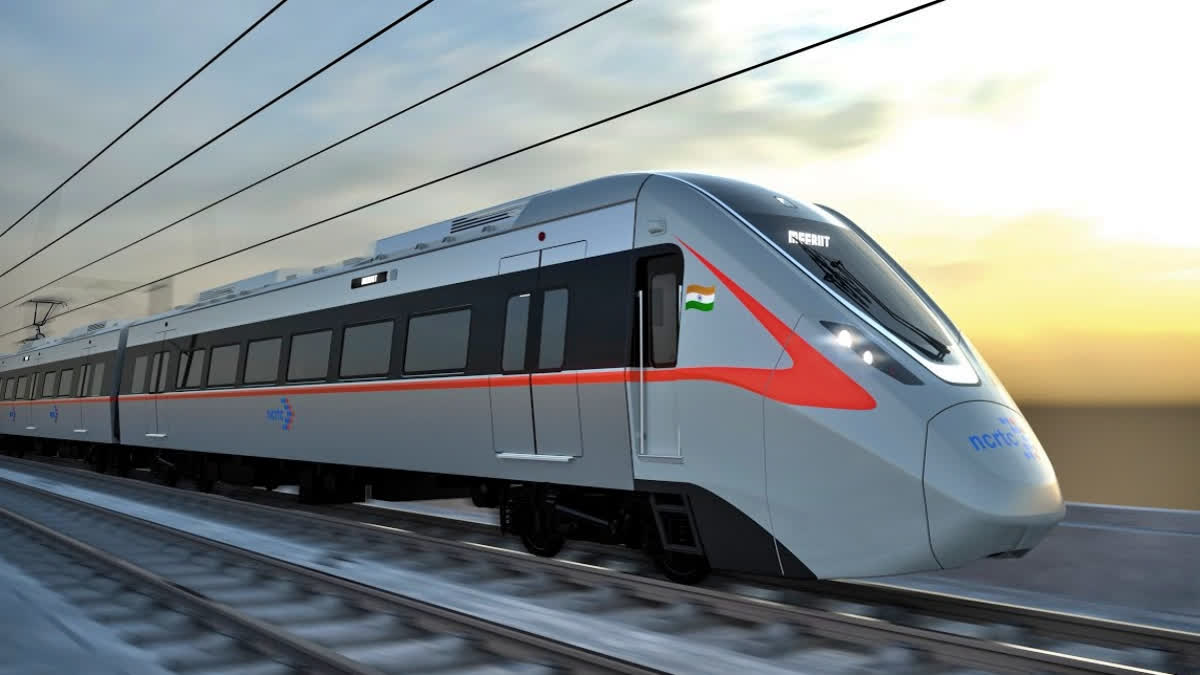New Delhi:After a nudge from the Supreme Court, the Delhi government Monday agreed to provide funds for regional rapid transit system (RRTS) projects for Delhi-Alwar and Delhi-Panipat corridors and said it will release the first instalment of Rs 415 crore within two months. The state government also informed the top court that it has spent Rs 1073.16 crore on advertisements in the last three financial years.
A bench headed by Justice Sanjay Kishan Kaul and Sudhanshu Dhulia directed the Delhi government to begin releasing funds for the projects within two months. The state government agreed to clear the arrears and contended before the court that it will provide funds for the projects and the first installment will come within two months.
On July 3, the Supreme Court directed the Delhi government to furnish a detailed account of how much it spent on advertisements in the last three financial years, after it expressed its inability to provide funds for regional rapid transit system (RRTS) projects for Delhi-Alwar and Delhi-Panipat corridors.
In an affidavit, the Delhi government said "the funds utilised for advertisement by the Directorate of Information and Publicity (DIP), GNCTD from the DIP budget and other departments/autonomous bodies/organization etc is Rs 1073.16 crore". The state government submitted the three-year breakup of funds for advertisements before the court: For 2021-21, Rs 293.2 crore; for 2021-22, Rs 579.91 crore; and for 2022-23, it was Rs 196.36 crore.
The state government said: “This Hon'ble Court may kindly appreciate that the expenditure as above is a necessary component of good governance and effective administration. The funds allocated for publicity purposes are aimed at maximizing the reach and impact of government policies, ultimately benefiting the public at large...”
Also read: 'We see all funds for ads...', SC seek Delhi govt affidavit on funds utilized for advertisements in last three years
"By investing in publicity, the Delhi Government aims to bridge the gap between the government and its citizens, ensuring that the benefits of its schemes and programs reach the intended beneficiaries to enable the public to make informed decisions and take advantage of the resources provided by the government," the government said in its affidavit.
The RRTS project consists of semi-high-speed rail corridors connecting Delhi to Meerut in Uttar Pradesh, Alwar in Rajasthan, and Panipat in Haryana. During the hearing, the top court told counsel representing the Delhi government, “We were constrained to pass the last order only on account of the NCT government throwing its hands (up) to contribute to the project”.
Senior advocate Abhishek Singhvi, representing the Delhi government, made submissions regarding the budgetary allocation made towards advertisements in the last three years. The apex court said if Rs 1,100 crore budget can be spent on advertising in the last three financial years, then the state government can certainly contribute towards infrastructure projects. The bench said, “Your one-year advertising budget is more than what you are giving for the project…..”.
Singhvi submitted before the court that payment will be made towards the project and urged the court to permit his client to contribute in instalments spread over a reasonable period of time. The National Capital Region Transport Corporation (NCRTC) is executing the project, which is a joint venture between the Centre and the state governments concerned.
The top court had ordered the Delhi government to bring on record its advertisements spending after it cited the lack of availability of funds as the reason for its inability to contribute its share of Rs 3,261 crores and Rs 2,443 crores towards the construction of the Delhi-Gurugram-Rewari-Alwar and Delhi-Sonipat-Panipat corridors. Apart from this liability, the Delhi government is also required to contribute Rs 1180 crore towards its share for the construction of the Delhi-Meerut corridor.
“One of the significant reasons for the scarcity of funds is the termination of the GST Compensation Programme in June 2022, which has severely impacted Delhi. The promise of GST leading to buoyant state revenue has not been realized due to multiple reasons, including the impact of the COVID-19 pandemic," the Delhi government said.
The state government requested the apex court to permit it to make the payment in instalments, spread over a reasonable period of time to enable the government to fulfil its obligations while also ensuring the smooth functioning of other essential governmental functions and services. Senior advocate A D N Rao is the amicus curiae in the matter.
Also read: Rs 11,440 cr spent on Delhi-Meerut RRTS corridor project till November 30, govt tells Parliament
